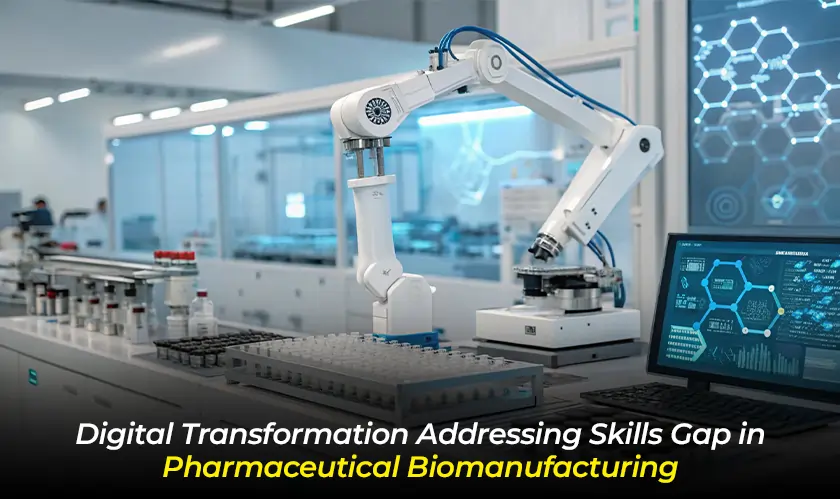Home Industry Pharmaceuticals Digital Transformation Address...
Pharmaceuticals

CIO Bulletin
01 April, 2025
Pharmaceutical biomanufacturing fights talent deficiencies through automated systems and AI applications and virtual training scenarios to provide better efficiency and training standards.
Biomanufacturing along with the pharmaceutical industry faces a rising skills deficit because medical drug production demands highly specialized knowledge. The use of living organisms in product creation within biomanufacturing intensifies as the industry adopts modern digital technologies to overcome manufacturing difficulties.
Operators who want to fulfill industry requirements must gain hybrid skills between biotechnology and mechanical engineering and data science. The emerging biotherapies and gene therapies require businesses to invest in recruiting skilled professionals because their numbers continue to grow AI and automation systems play a vital role in closing the operational deficiency in pharmaceutical manufacturing.
Automated systems bring benefits to biomanufacturing companies by smoothing production flows thus letting one controller manage several operations which reduces skill shortage impact. AI algorithms accelerate data analytics processes which create availability for senior staff members to tackle tasks of elevated value. Digital twin simulations provide secure training spaces that help new employees develop their skills without risks.
Biomanufacturers need to implement creative strategies when partnering with technology vendors and educational institutions and industry associations while undergoing quick digital transformation of the sector. By applying such training strategies the pharmaceutical workforce will stay suited to address the continuously changing requirements of pharmaceutical medicine production.







